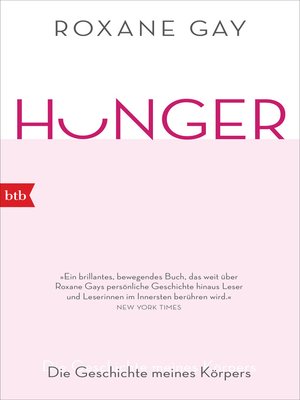


“The story of my body is not a story of triumph,” Gay writes in the book’s opening pages. I am tracing the story of my body from when I was a carefree young girl who could trust her body and who felt safe in her body, to the moment when that safety was destroyed, to the aftermath that continues even as I try to undo so much of what was done to me.” And now, I am choosing to no longer be silent. “I have been silent about my story in a world where people assume they know the why of my body, or any fat body. So does the ritual that Gay says she devised in response to the violation: to eat and eat until “I made myself safer,” erecting “a distinct boundary between myself and anyone who dared to approach me.” Gay understood “that too much weight was undesirable.” She wanted to appear off-limits, and also to avail herself of food’s easy gratifications, its “orgy” of “pleasure” aimed at “a hunger that could never be satisfied-the hunger to stop hurting.” “I have tried to move on from the trauma that compelled me to create this body,” Gay claims early in the memoir. In light of this revelation, her desire for womblike security-a kinder envelopment-makes a terrible sort of sense. Hunger’s animating wound is that a group of boys, including one that Gay loved, raped her in the woods when she was 12. Want to listen to this article out loud? Hear it on Slate Voice.

It reveals a preteen girl’s craving for wholeness and solace, her innocent wish for an oceanic embrace. But for Gay, the preoccupation with being physically surrounded feels especially poignant. This notion of the self as concealed or drowned, in need of recovery, goes back at least to Adrienne Rich’s poem “ Diving Into the Wreck,” which literalized the poet’s search for her own identity as the underwater exploration of a sunken ship. She describes the enthralling process of growing “immersed in the anonymity” of the internet she loves “the water, the freedom of moving through it, feeling weightless” she loses herself in food, in its comforting oblivion, and then finds herself submerged in her physical form. Gay, who at one point weighed 577 pounds, speaks of her flesh as “layers of protection I built around myself,” likening her frame to a “fortress” or “cage.” She says that the idea of enclosure in other spaces enchants her. They announce the author’s hard journey: After years of feeling alienated and powerless inside her body, Gay will attempt, through her storytelling, to take full possession of it. Those parentheses seem designed to call the ownership of her body into question. Roxane Gay’s new book-the “most difficult writing experience of my life,” she admits on -is called Hunger: A Memoir of (My) Body.


 0 kommentar(er)
0 kommentar(er)
